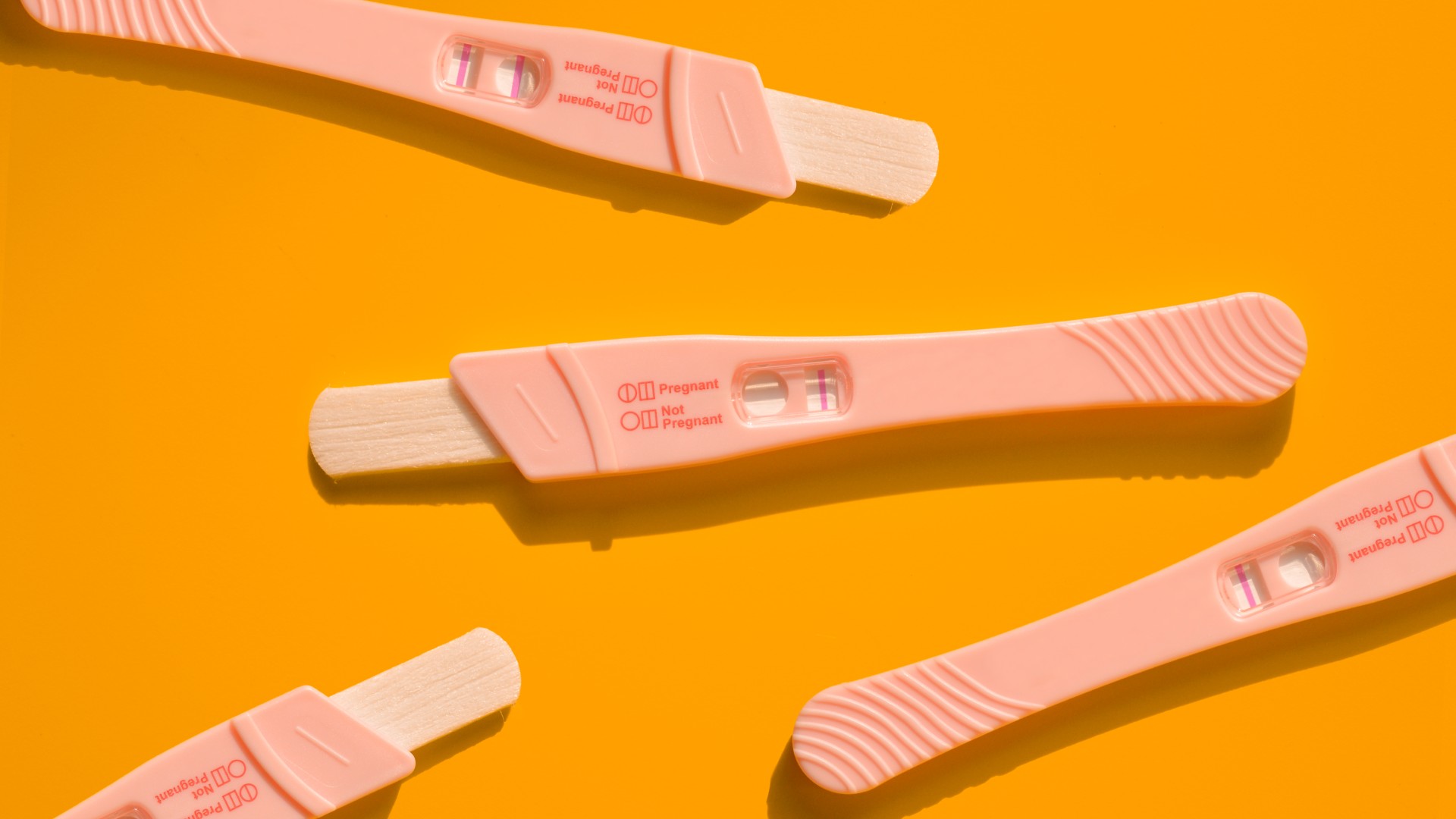IVM is a better treatment than IVF for some women
A less painful, less costly option for treating infertility


A free daily email with the biggest news stories of the day – and the best features from TheWeek.com
You are now subscribed
Your newsletter sign-up was successful
For people struggling to conceive, typical fertility treatment options like in vitro fertilization, or IVF, can be taxing physically, emotionally and financially. However, advances in technology are helping to improve another less painful and costly option for treating infertility, known as in vitro maturation, or IVM.
What is the difference between IVM and IVF?
In vitro maturation is surfacing as an alternative to in vitro fertilization that could "reduce the cost and time that fertility patients spend at the doctor's office and mitigate the side effects," said The Atlantic. While IVF, the typical fertility treatment, "relies on hormone injections to ripen a crop of eggs inside the body," IVM involves "collecting immature eggs from the ovaries and maturing them in the lab."
The first baby born from IVM was in Korea in 1991. Since then, the "method has generally yielded lower birth rates than IVF," said The Atlantic. It has historically generated fewer mature eggs and embryos than IVF, but those stats are improving with better technology. Although it maintains a lower success rate than IVF, IVM could still be "the better option for several groups of patients."
The Week
Escape your echo chamber. Get the facts behind the news, plus analysis from multiple perspectives.

Sign up for The Week's Free Newsletters
From our morning news briefing to a weekly Good News Newsletter, get the best of The Week delivered directly to your inbox.
From our morning news briefing to a weekly Good News Newsletter, get the best of The Week delivered directly to your inbox.
IVM is also considerably less invasive and gentler on the patient than IVF. The latter requires women to endure "multiple hormonal injections during the egg retrieval process to encourage egg maturation while the eggs are still in the ovaries," the American Pregnancy Association said. The latter procedure "matures the eggs after they have been retrieved, which makes the hormonal injections into the mother unnecessary." With fewer injections, exams and labs needed and a shorter time for the treatment, the cost of IVM procedures is "expected to be much lower than for IVF."
Who can benefit from IVM?
IVM offers several advantages compared to conventional IVF, including "reduced gonadotropin stimulation, minimal risk of ovarian hyperstimulation syndrome, reduced treatment times and lower costs," per the Journal of Reproductive Biology and Endocrinology. Decades after the first IVM birth, new scientific techniques are "raising the possibility that IVM could be a viable alternative to IVF — at least for some patients — and free thousands of aspiring mothers from brutal protocols," said The Atlantic.
Egg donors who have undergone multiple retrieval cycles could be good candidates for IVM. It is also a good option for those deemed "hyper-responders," patients whose "ovaries naturally develop more follicles each month, thanks to their young age or conditions such as polycystic ovary syndrome," The Atlantic said. These patients are at the highest risk for dangerous IVF side effects, like ovarian hyperstimulation syndrome, so "IVM could be a safer choice and an effective one."
It could also be helpful to cancer patients, "many of whom don't have time to undergo a lengthy IVF cycle before beginning cancer treatment that threatens their fertility," said The Atlantic. In the future, IVM could go far in reducing the "physical and emotional toll that fertility treatment takes on women at a time when more people than ever are seeking it out." Within the fertility industry, said Dina Radenkovic, the CEO of biotech company Gameto, to The Atlantic, there is a "growing recognition that fertility treatments must be not only effective but also more humane."
A free daily email with the biggest news stories of the day – and the best features from TheWeek.com
Theara Coleman has worked as a staff writer at The Week since September 2022. She frequently writes about technology, education, literature and general news. She was previously a contributing writer and assistant editor at Honeysuckle Magazine, where she covered racial politics and cannabis industry news.
-
 What is the endgame in the DHS shutdown?
What is the endgame in the DHS shutdown?Today’s Big Question Democrats want to rein in ICE’s immigration crackdown
-
 ‘Poor time management isn’t just an inconvenience’
‘Poor time management isn’t just an inconvenience’Instant Opinion Opinion, comment and editorials of the day
-
 Bad Bunny’s Super Bowl: A win for unity
Bad Bunny’s Super Bowl: A win for unityFeature The global superstar's halftime show was a celebration for everyone to enjoy
-
 ‘Zero trimester’ influencers believe a healthy pregnancy is a choice
‘Zero trimester’ influencers believe a healthy pregnancy is a choiceThe Explainer Is prepping during the preconception period the answer for hopeful couples?
-
 Growing a brain in the lab
Growing a brain in the labFeature It's a tiny version of a developing human cerebral cortex
-
 Mixed nuts: RFK Jr.’s new nutrition guidelines receive uneven reviews
Mixed nuts: RFK Jr.’s new nutrition guidelines receive uneven reviewsTalking Points The guidelines emphasize red meat and full-fat dairy
-
 Trump HHS slashes advised child vaccinations
Trump HHS slashes advised child vaccinationsSpeed Read In a widely condemned move, the CDC will now recommend that children get vaccinated against 11 communicable diseases, not 17
-
 The truth about vitamin supplements
The truth about vitamin supplementsThe Explainer UK industry worth £559 million but scientific evidence of health benefits is ‘complicated’
-
 Health: Will Kennedy dismantle U.S. immunization policy?
Health: Will Kennedy dismantle U.S. immunization policy?Feature ‘America’s vaccine playbook is being rewritten by people who don’t believe in them’
-
 Stopping GLP-1s raises complicated questions for pregnancy
Stopping GLP-1s raises complicated questions for pregnancyThe Explainer Stopping the medication could be risky during pregnancy, but there is more to the story to be uncovered
-
 Choline: the ‘under-appreciated’ nutrient
Choline: the ‘under-appreciated’ nutrientThe Explainer Studies link choline levels to accelerated ageing, anxiety, memory function and more
